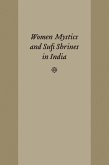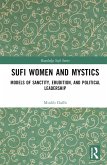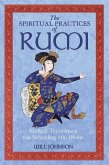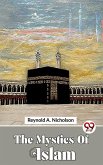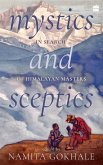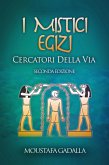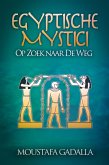This book explains how Ancient Egypt is the origin of alchemy and present-day Sufism, and how the mystics of Egypt camouflage their practices with a thin layer of Islam. The book also explains the progression of the mystical Way towards enlightenment, with a coherent explanation of its fundamentals and practices. It shows the correspondence between the Ancient Egyptian calendar of events and the cosmic cycles of the universe.
This Expanded Version of the book is divided into four parts containing a total of 13 chapters and five appendices.
Part I: The Hidden Treasure consists of two chapters:
Chapter 1: Egyptian Mysticism and Islamized Sufism will cover the differences between dogmatic and mystical routes and how ancient Egypt is the source of Sufism and alchemy.
Chapter 2: The Treasure Within will cover the limitations of humans' organ of perceptions and how to find realities with such limitations.
Part II: Transformation From Dust To Gold consists of five chapters3 through 7:
Chapter 3: The Alchemist Way will cover the source of alchemy as being Ancient Egypt; and the progression along the alchemist way; and the role of a guide in the process.
Chapter 4: The Purification Process will cover both outer and inner purifications through the process of living in the world.
Chapter 5: Basic Practices will cover general practices by the Egyptian mystics to increase their awareness of the real world.
Chapter 6: The Way to Revelations will cover the methods by which a mystical aspirant can find knowledge through revelations.
Chapter 7: The Heavenly Helpers will cover the role and duty of those who attained super natural powers, to help others on earth.
Part III: The Public Visitation Fairs has four chapterschapters 8 through 11:
Chapter 8: The Cyclical Renewal Festivals will cover the importance of holding and participating in annual festivals.
Chapter 9: Samples of Ancient-Present Festivals will cover about a dozen annual ancient egyptian festivals and how many of them are very familiar and being observed throughout the western world.
Chapter 10: The Egyptian Spirited Fairs (Mouleds) will cover the main elements of a typical festival
Chapter 11: Egyptian Themes of Saint's Nick Traditional Festivities will cover a comparison between the commonly known Saint Nick's Christmas traditions with a typical Ancient Egyptian festival of a folk-saint.
Part IV: Come One Come All has two chapters12 through 13.
Chapter 12: Fellowship Formations covers the general structure and practices to form/participate in a mystical fellowship.
Chapter 13: Auset (Isis)The Model Philosopher covers the principles and practices of Sufism as found in the Ancient Egyptian allegory of Isis and Osiris.
The contents of the five appendices are self evident from each's title, as follows:
Appendix A: Miscellaneous Sufi Terms and Their Ancient Egyptian Roots
Appendix B: Sleeping With the Enemy (Surviving Islam)
Appendix C: ZikrThe Ecstatic Practice
Appendix D: Reaching the Hearts and Minds (Effective Communication)
Appendix E: The Egyptian vs. The Latin Calendar.
Dieser Download kann aus rechtlichen Gründen nur mit Rechnungsadresse in A, B, CY, CZ, D, DK, EW, E, FIN, F, GR, H, IRL, I, LT, L, LR, M, NL, PL, P, R, S, SLO, SK ausgeliefert werden.



